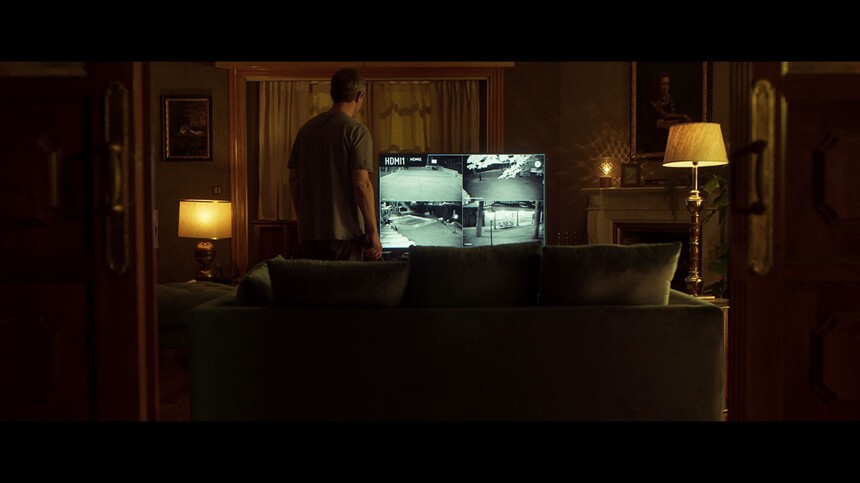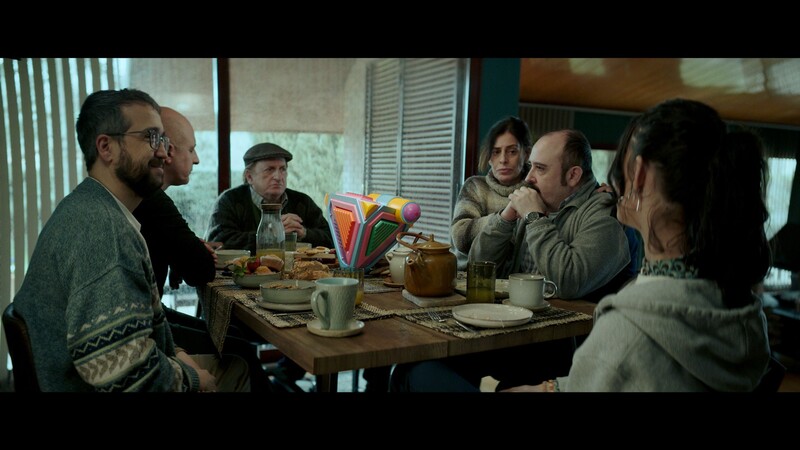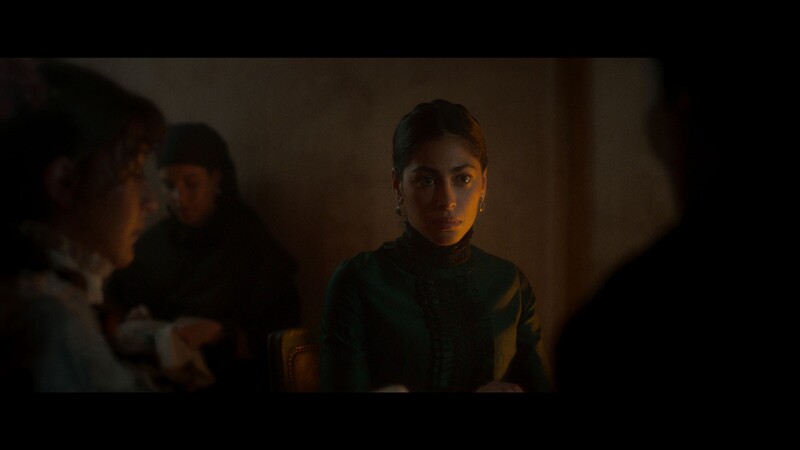Sitges 2022 Review: STORIES TO KEEP YOU AWAKE Season 2 Delights, Terrifies, Intensifies the Fears

Narciso Ibáñez Serrador's series Historias para no dormir remains one of the most important and influential in Spanish television history; part Twilight Zone, part horror anthology, it has been revived a few times, in the early 2000s with works by Alex de la Iglesia and Mateo Gil, and again recently in 2021 with a new series, with filmmakers such as Paco Plaza and Paula Ortiz. The second season continues the strength and creativity of the first, and the earlier series, as it revamps (figuratively and literally) stories from the earlier incarnation of the show.
These four one-hour episodes explore stories old and new, monsters human and otherwise; three of the filmmakers are ones familiar to genre fans outside of Spain: Jaume Balagueró ([REC], Venus), Nacho Vigalondo (Timecrimes, Colossal), and Alice Waddington (Paradise Hills), while the fourth is a more familiar name in Spanish television, Salvador Calvo. All four offer chills, thrills, and rich storytelling in comteporary updates of the classic stories.
The Transplant - Salvador Calvo
The source material for this story is one that will be familiar to fans of The Twilight Zone: in a society in which people can be 'transferred' into younger bodies, being old is reviled - you risk your job, your living situation. But of course, only those with sufficient means can afford such a transfer. An older couple realize they both might lose their jobs if they don't become younger; but they only have enough money for one, so it's decided that the husband will be transfered, and they'll save money for the wife as soon as possible. Meanwhile, a slightly younger but still old man, finds himself on the other side: needing to sell parts of his body to the tranfers company. But at what price does this come for his own life?
This episode is a terrific example of one that, even though you know what the themes (and answers to those themes are), it's still incredibly engaging and frightening. With veteram actors like Javier Gutièrrez and Petra Martínez, it's hard not to feel your heart wrench as the latter faces his death simply from being caught on the wrong side of the class divide, and the latter slowly realize that her husband is happily forgetting her. Calvo imbues this single episode with ideas of how we view the worth of a human being, the lure of youth and beauty, the sublime beauty that comes with aging, and how our final actions serve as evidence of who we truly are. It's a consistently interesting and powerful episode.
La Alarma - Nacho Vigalondo
It definitely begins as probably many people's worst nightmare: you've had family visiting, and now an inconceivable event forces them to remain with you for days. Or is it weeks? Or merely hours. Time and its passage is just one of the things that Gabriel can't quite figure out in Vigalondo's sci fi dark comedy. There's also the fact that the guy Gabe had a brief affair with has shown up - which is odd, considering no one can leave their homes due to the acd rain and strange objects floating in the sky. His niece Carolina points out that they never seem to run out of food, and they are the only two people who acknowledge the bizzare plastic object that just appeared on the dining table.
Vigalondo has a flair for putting his characters into the most bizarre situations, and finding the humour, even if death is somehow strangely looming, we can't help but find the absurdity. Such is life, of course, and it's turned up to the maximum: why are Gabe and his niece the only ones to notice that something is wrong? Who is this strange family invading their space, are they really related? How did the hot guy end up with them, and Gabe resist his charms, especially when not only food, but his small supply of cocaine keeps replenishing? Vigalondo's episode is scary, funny, and anti-romantic (or perhaps longs for love too much?)
La Pesadilla - Alice Waddington
It's the last 19th century in Galicia, the often-forgotten northwest corner of Spain, and several girls from a village have gone missing without a trace. Claiming the need to protect them, a curfew is placed on all the women, and blame shifts towards the Moor (Boré Buika) who has recently acquired the local grand home, and whose presence is decidely not wanted. These temporary measures do not satisfay one young woman (Mina El Hammani), who, with the assistance of the local captain (Álvaro Morte, Money Heist), dares to venture out to find the real culprit - who is, big surprise, someone the village would never dare accuse. Oh, and he's a vampire.
Vampires have long been used as symbols of evil, or of the other (evil or otherwise), but Waddington and co-writer Rocío Martínez Llamo take the symbolism in a different and intruiging direction. It's not about vampirism, per se, but our perception of the other and how we use that to persecture those who are different. The young woman straddles a line between acceptance and denial of society; the Moor knows he will never be accepted, while the Captain has full confidence that he will always be welcome, despite his true nature. Vampirism is not just evil or good, and what makes us either of those is far more than skin deep.
El Televisor - Jaume Balagueró
While the other episodes are very thought-provoking in the fear they induce, trust Balagueró to provide the episode that is consistently terrifying in the 'hide-your-eyes-behind-your-hands-but-you'll-still-peek' variety. It's still thought-provoking, of course, but also the kind of horror that will make you triple-check if you've locked all your doors and windows. When a family of four moves into a new large home, with a large grounds that includes a pool, the Dad decides that they need a proper security system. But his considerations turns to obsession turns to madness, as he spends every waking hour watching, convinced he sees strange people lurking, lurching towards the house.
Like the first episode, it's easy enough to understand the themes and ideas Balagueró and co-writer Alberto Marini are exploring: paranoia, how having more material wealth means you worry more, consume more, and hoard more. Dad is so worried about protecting his family, he doesn't really even look at them - if he did, he might realize the proverbial call is coming not from where he expects. Definitely an episode that will make you scream out loud, even as we can recognize some of our own overly cautious paranoia.









